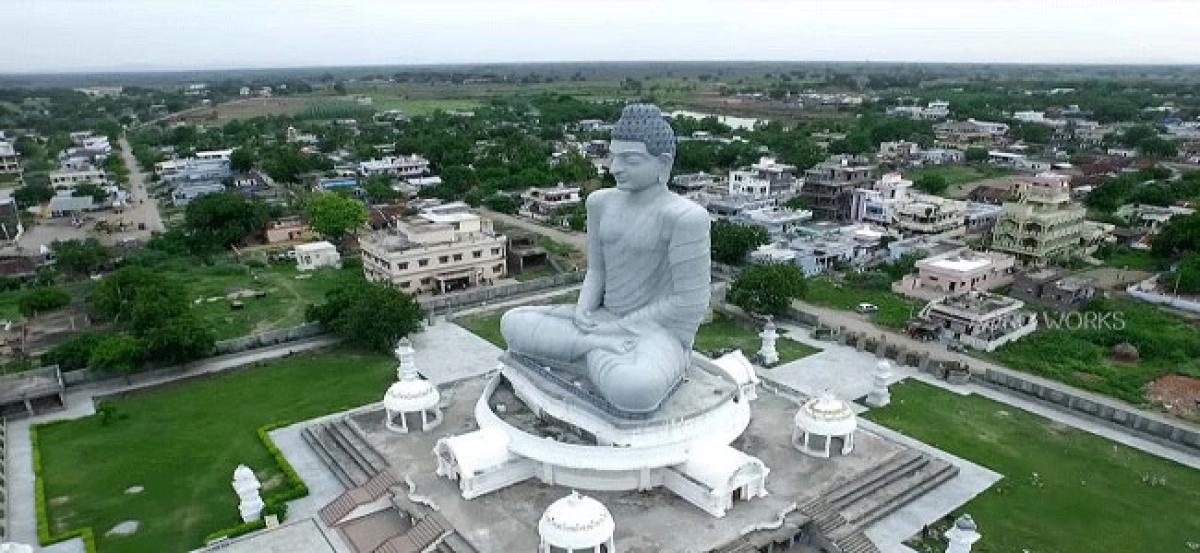Live
- India Capitals appoint Ian Bell as captain for LLC season 3
- MP CM to visit Kolkata to attend Global Business Summit on Friday
- 49th All India Music & Dance Competitions Begin Today with Inaugural Ceremony
- Popular auctioneer Richard Madley to helm SA20 player auction on October 1, 2024
- President Murmu wins hearts in MP, seeks blessing of Mahakaal
- Israel puts forward new Gaza ceasefire deal: state media
- Over 100 Chakma houses & shops set on fire in B’desh, claims rights body
- MAHE Researchers Ranked Among the Top 2% Globally for 2024 in Prestigious Citation Database
- Woxsen University Secures 6th Spot in Asia-Pacific in the prestigious Bloomberg Best B-School 2024 Rankings
- Yamaha launched ‘The Call of The Blue’ Version 4.0 brand campaign for the young and dynamic customers
Just In

The Finance Ministers from the states of Puducherry, West Bengal, Kerala, Delhi and Punjab are attending the “Conclave of Finance Ministers of States with common ideology on Fiscal Federalism” on 7th May in Amaravati. In fact, this is going to be the second meeting, as the first one was held in Kerala last month. Though it was started by Southern States, the northern states are also joining hands
Amaravati: The Finance Ministers from the states of Puducherry, West Bengal, Kerala, Delhi and Punjab are attending the “Conclave of Finance Ministers of States with common ideology on Fiscal Federalism” on 7th May in Amaravati. In fact, this is going to be the second meeting, as the first one was held in Kerala last month. Though it was started by Southern States, the northern states are also joining hands against Central government on it.
These states are demanding changes in 15th Finance Commission’s Terms of Reference (ToR), or else states will lose fiscal powers. The ToR are heavily loaded in favour of the Union government, explained C Kutumba Rao, Vice-Chairman, AP State Planning Board, in a press release here on Saturday.
This is the first Finance Commission after the abolition of the Planning Commission and launch of NITI Aayog. The main objection in the ToRis to use population figures from the 2011 census instead of the 1971 census in the formula for determining states’ shares.
The state shares of a divisible pool, has risen from roughly 24% of the Centre’s tax revenue at the start of reform in 1991, to a peak of 42% prescribed by FC-14 for the period 2015-20. The 14th Finance Commission was the first to take an aggregate view of resources and expenditures, and recommended a 42% tax devolution to cover both non-plan and plan revenue expenditures of states.
At the same time, the 14 FC’s assessment of Union finances from 2015–16 to 2019–20 provided sufficient fiscal resources for the Union to perform its functions. However, due to an unprecedented mandate, the 15 FC was asked to review the impact of enhanced tax devolution recommended by the 14 FC. Providing the Article 275 grants to the states is an instrument to cover the post-devolution revenue deficits of states.
If the commission decides to do away with revenue deficit grants, what alternative mechanism will be adopted to meet the post-devolution deficits of states, he demanded.
The ToR are heavily skewed towards conditionalities, he criticised. As per ToR (7), the commission may consider proposing measurable performance-based incentives for states, at the appropriate level of government in several areas. A number of questions arise in this context. Is the commission the right institution to judge the performance of states and provide incentives?
Another ambiguity in ToR- Control or lack of it in incurring expenditure on populist measures, he explained, while questioning that who decides what is populist? Are they just excessive subsidies or schemes that put a burden on the exchequer? he asked. Another statement in ToR is – All states will be judged on the basis of how well they implemented flagship schemes of the Union.
Demanding to justify the provision, Kutumba Rao asked that why do the states need to implement anything at all? What if they do not agree with the ideological solution of the Centre, or if the amount the Centre allocated to a certain state was a lot less than necessary to implement it well? He pointed out that the central government forgotten the vital rule of giving states more autonomy.

© 2024 Hyderabad Media House Limited/The Hans India. All rights reserved. Powered by hocalwire.com







